Cherry
How to submit an article:
- Registered users can submit any published journal article that has a unique DOI (Digital Object Identifier) name or link to Research Hub.
- For example, you can paste the full DOI link:
https://doi.org/10.1109/5.771073or just the DOI name:10.1109/5.771073into the field above and click submit. - The person who is first to submit a valid article to Research Hub will forever be credited for it, and every article submission earns you +6 Research Points.
Related Topics
Published research studies are articles that present the findings of original research that has undergone a peer-review process and has been made publicly available in scholarly journals, books or other media.
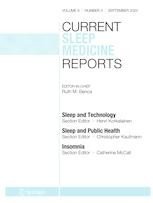
Too Sour to be True? Tart Cherries (Prunus cerasus) and Sleep: a Systematic Review and Meta-analysis
2023 Jul 11 Current Sleep Medicine Reports Stretton B, Eranki A, Kovoor J, Bacchi S, Gupta A, Maddern G, et al.
Systematic Review Meta-Analysis Cherry Sleep InsomniaThere is evidence to support significant improvements to total sleep time and sleep efficiency with the ingestion of tart cherries.

Effects of tart cherry juice consumption on cardio-metabolic risk factors: A systematic review and meta-analysis of randomized-controlled trials
2022 Dec Complementary Therapies in Medicine Moosavian SP, Maharat M, Chambari M, Moradi F, Rahimlou M
Systematic Review Meta-Analysis Blood Sugar Type 2 Diabetes Heart Disease Cardiovascular Disease CherryTart cherry juice shows promise in aiding blood sugar control and supporting heart health, highlighting its potential as a natural dietary addition.

Cherries and Blueberries-Based Beverages: Functional Foods with Antidiabetic and Immune Booster Properties
2022 May 20 Molecules Gonçalves AC, Nunes AR, Flores-Félix JD, Alves G, Silva LR
Review Article Antioxidant Anti-Inflammatory Immunity Type 2 Diabetes Blueberry Cherry Anti-DiabeticCherries and blueberries, rich in phenolic compounds, can be effectively used in pharmaceutical products, smart foods, functional beverages, and nutraceuticals to prevent or treat diseases.
“Precovery” versus recovery: Understanding the role of cherry juice in exercise recovery
2022 Feb 14 Scandinavian Journal of Medicine & Science in Sports McHugh MP
Review Article Exercise CherryCherry juice, when consumed several days before exercise, hastens muscle function recovery post-exercise, making it a valuable 'precovery' intervention.

Thirty Days of Montmorency Tart Cherry Supplementation Has No Effect on Gut Microbiome Composition, Inflammation, or Glycemic Control in Healthy Adults
2021 Sep 16 Frontiers in Nutrition Hillman AR, Chrismas BCR
No significant alterations in the gut microbiome, and no significant impact of MTC supplementation on inflammation or glucose regulation. These results may partially be due to the use of a healthy population, who did not have inflammatory conditions and thus future work may need to focus on clinical populations.
Randomised Controlled Trial Gut Microbiota CherryResearch insights are moderated by the Research Hub team and offer an at-a-glance overview of interesting research findings.

2023 Current Sleep Medicine Reports
There is evidence to support significant improvements to total sleep time and sleep efficiency with the ingestion of tart cherries.
Systematic Review Insomnia Sleep
Too Sour to be True? Tart Cherries (Prunus cerasus) and Sleep: a Systematic Review and Meta-analysis
Stretton B, Eranki A, Kovoor J, Bacchi S, Gupta A, Maddern G, et al.

2022 Complementary Therapies in Medicine
Tart cherry juice shows promise in aiding blood sugar control and supporting heart health, highlighting its potential as a natural dietary addition.
Systematic Review Blood Sugar Cardiovascular Disease Heart Disease Type 2 Diabetes
Effects of tart cherry juice consumption on cardio-metabolic risk factors: A systematic review and meta-analysis of randomized-controlled trials
Moosavian SP, Maharat M, Chambari M, Moradi F, Rahimlou M

2022 Molecules
Cherries and blueberries, rich in phenolic compounds, can be effectively used in pharmaceutical products, smart foods, functional beverages, and nutraceuticals to prevent or treat diseases.
Review Article Anti-Diabetic Anti-Inflammatory Antioxidant Blueberry Immunity
Cherries and Blueberries-Based Beverages: Functional Foods with Antidiabetic and Immune Booster Properties
Gonçalves AC, Nunes AR, Flores-Félix JD, Alves G, Silva LR
2022 Scandinavian Journal of Medicine & Science in Sports
Cherry juice, when consumed several days before exercise, hastens muscle function recovery post-exercise, making it a valuable 'precovery' intervention.
Review Article Exercise
“Precovery” versus recovery: Understanding the role of cherry juice in exercise recovery
McHugh MP
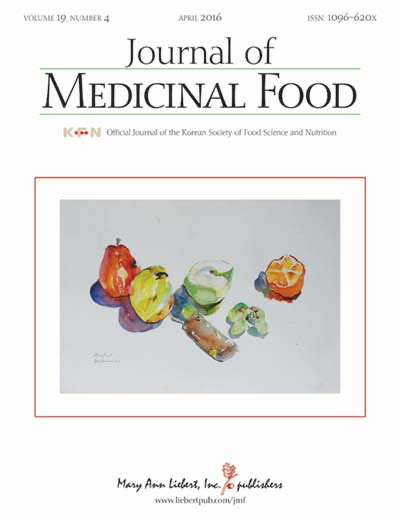
2020 Journal of Medicinal Food
Daily consumption of tart cherry juice may reduce processes involved in accelerated atherogenesis, potentially decreasing the risk of cardiovascular diseases.
Randomised Controlled Trial Atherogenesis Cardioprotective Effects Cardiovascular Disease LDL Metabolic Syndrome
Effects of Montmorency Tart Cherry Juice Consumption on Cardiometabolic Biomarkers in Adults with Metabolic Syndrome: A Randomized Controlled Pilot Trial
Johnson SA, Navaei N, Pourafshar S, Jaime SJ, Akhavan NS, Alvarez-Alvarado S, et al.
Review Articles
Review articles summarise and critically evaluate the current state of research on a specific topic or field by synthesising multiple primary research studies.

Too Sour to be True? Tart Cherries (Prunus cerasus) and Sleep: a Systematic Review and Meta-analysis
2023 Jul 11 Current Sleep Medicine Reports Stretton B, Eranki A, Kovoor J, Bacchi S, Gupta A, Maddern G, et al.
Systematic Review Meta-Analysis Cherry Sleep InsomniaThere is evidence to support significant improvements to total sleep time and sleep efficiency with the ingestion of tart cherries.

Effects of tart cherry juice consumption on cardio-metabolic risk factors: A systematic review and meta-analysis of randomized-controlled trials
2022 Dec Complementary Therapies in Medicine Moosavian SP, Maharat M, Chambari M, Moradi F, Rahimlou M
Systematic Review Meta-Analysis Blood Sugar Type 2 Diabetes Heart Disease Cardiovascular Disease CherryTart cherry juice shows promise in aiding blood sugar control and supporting heart health, highlighting its potential as a natural dietary addition.

Cherries and Blueberries-Based Beverages: Functional Foods with Antidiabetic and Immune Booster Properties
2022 May 20 Molecules Gonçalves AC, Nunes AR, Flores-Félix JD, Alves G, Silva LR
Review Article Antioxidant Anti-Inflammatory Immunity Type 2 Diabetes Blueberry Cherry Anti-DiabeticCherries and blueberries, rich in phenolic compounds, can be effectively used in pharmaceutical products, smart foods, functional beverages, and nutraceuticals to prevent or treat diseases.
“Precovery” versus recovery: Understanding the role of cherry juice in exercise recovery
2022 Feb 14 Scandinavian Journal of Medicine & Science in Sports McHugh MP
Review Article Exercise CherryCherry juice, when consumed several days before exercise, hastens muscle function recovery post-exercise, making it a valuable 'precovery' intervention.
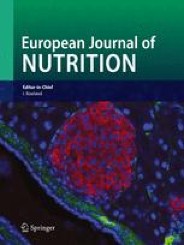
Effects of chronic consumption of specific fruit (berries, citrus and cherries) on CVD risk factors: a systematic review and meta-analysis of randomised controlled trials
2020 Jun 13 European Journal of Nutrition Wang Y, Gallegos JL, Haskell-Ramsay C, Lodge JK
Meta-Analysis Systematic Review High Blood Pressure Cranberry Cardiovascular Disease CherryChronic consumption of cranberry or cherry juice might considerably improve blood pressure levels.
Clinical Trials
Clinical trials are research studies that involve people and are conducted to evaluate the safety and efficacy of new treatments or interventions, such as drugs, medical devices, or behavioural therapies.

Thirty Days of Montmorency Tart Cherry Supplementation Has No Effect on Gut Microbiome Composition, Inflammation, or Glycemic Control in Healthy Adults
2021 Sep 16 Frontiers in Nutrition Hillman AR, Chrismas BCR
No significant alterations in the gut microbiome, and no significant impact of MTC supplementation on inflammation or glucose regulation. These results may partially be due to the use of a healthy population, who did not have inflammatory conditions and thus future work may need to focus on clinical populations.
Randomised Controlled Trial Gut Microbiota Cherry
Effects of Montmorency Tart Cherry Juice Consumption on Cardiometabolic Biomarkers in Adults with Metabolic Syndrome: A Randomized Controlled Pilot Trial
2020 Dec 01 Journal of Medicinal Food Johnson SA, Navaei N, Pourafshar S, Jaime SJ, Akhavan NS, Alvarez-Alvarado S, et al.
Randomised Controlled Trial LDL Cardioprotective Effects Atherogenesis Cherry Cardiovascular Disease Metabolic SyndromeDaily consumption of tart cherry juice may reduce processes involved in accelerated atherogenesis, potentially decreasing the risk of cardiovascular diseases.

Effects of Tart Cherry Juice on Biomarkers of Inflammation and Oxidative Stress in Older Adults
2019 Jan 22 Nutrients Chai S, Davis K, Zhang Z, Zha L, Kirschner K
Randomised Controlled Trial Oxidative Stress LDL Inflammation Cherry High Blood PressureDaily consumption of tart cherry juice for 12 weeks showed anti-oxidative and anti-inflammatory properties which may reduce blood pressure and lower LDL cholesterol in older adults.
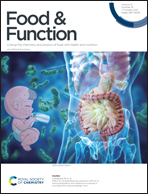
Effect of Montmorency tart cherry juice on cognitive performance in older adults: a randomized controlled trial
2019 Jan Food & Function Chai SC, Jerusik J, Davis K, Wright RS, Zhang Z
Randomised Controlled Trial Antioxidant Anti-Inflammatory Anti-Ageing Cherry Cognitive FunctionDaily consumption of tart cherry juice may enhance cognitive abilities in older adults, likely due to reduction of hypertension, inflammation, and oxidative stress.
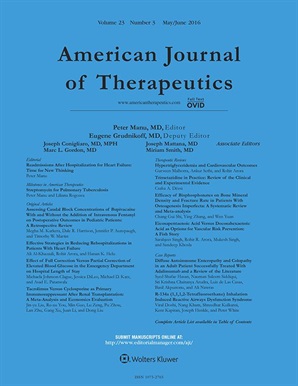
Pilot Study of the Tart Cherry Juice for the Treatment of Insomnia and Investigation of Mechanisms
2018 Mar American Journal of Therapeutics Losso JN, Finley JW, Karki N, Liu AG, Prudente A, Tipton R, et al.
Randomised Controlled Trial Insomnia Tryptophan SleepCherry juice increases sleep time and efficiency in older adults with insomnia, potentially due to its inhibition of a process that degrades tryptophan and stimulates inflammation.
Study Protocols
Published study protocols are detailed plans that outline the objectives, methodology, statistical analyses, and organisation of a research study that have been made publicly available for others to review and use as a reference.
Presentation Slides

Systematic Review
There is evidence to support significant improvements to total sleep time and sleep efficiency with the ingestion of tart cherries.
Stretton B, Eranki A, Kovoor J, Bacchi S, Gupta A, Maddern G, Boyd M

Systematic Review
Tart cherry juice shows promise in aiding blood sugar control and supporting heart health, highlighting its potential as a natural dietary addition.
Moosavian SP, Maharat M, Chambari M, Moradi F, Rahimlou M

Review Article
Cherries and blueberries, rich in phenolic compounds, can be effectively used in pharmaceutical products, smart foods, functional beverages, and nutraceuticals to prevent or treat diseases.
Gonçalves AC, Nunes AR, Flores-Félix JD, Alves G, Silva LR

Review Article
Cherry juice, when consumed several days before exercise, hastens muscle function recovery post-exercise, making it a valuable 'precovery' intervention.
McHugh MP

Randomised Controlled Trial
Daily consumption of tart cherry juice may reduce processes involved in accelerated atherogenesis, potentially decreasing the risk of cardiovascular diseases.
Johnson SA, Navaei N, Pourafshar S, Jaime SJ, Akhavan NS, Alvarez-Alvarado S, Proaño GV, Litwin NS, Clark EA, Foley EM, George KS, Elam ML, Payton ME, Arjmandi BH, Figueroa A

Clinical Study
Montmorency tart cherry juice can significantly improve blood pressure, fasting glucose, cholesterol rates and respiratory exchange ratio in those with metabolic syndrome.
Desai T, Roberts M, Bottoms L

Meta-Analysis
Chronic consumption of cranberry or cherry juice might considerably improve blood pressure levels.
Wang Y, Gallegos JL, Haskell-Ramsay C, Lodge JK

Systematic Review
Gout patients regularly ingesting cherry extract/juice reported fewer gout flare ups than those patients who did not supplement their diets with cherry products.
Chen PE, Liu CY, Chien WH, Chien CW, Tung TH

Randomised Controlled Trial
Daily consumption of tart cherry juice for 12 weeks showed anti-oxidative and anti-inflammatory properties which may reduce blood pressure and lower LDL cholesterol in older adults.
Chai S, Davis K, Zhang Z, Zha L, Kirschner K

Randomised Controlled Trial
Daily consumption of tart cherry juice may enhance cognitive abilities in older adults, likely due to reduction of hypertension, inflammation, and oxidative stress.
Chai SC, Jerusik J, Davis K, Wright RS, Zhang Z
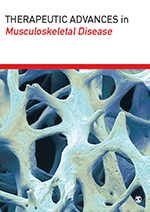
Review Article
Cherries and their products have antioxidant properties, the capacity to inhibit the acute inflammatory response to urate crystals, and the ability to decrease bone resorption that is characteristic of gouty bone erosions.
Collins MW, Saag KG, Singh JA

Randomised Controlled Trial
Cherry juice increases sleep time and efficiency in older adults with insomnia, potentially due to its inhibition of a process that degrades tryptophan and stimulates inflammation.
Losso JN, Finley JW, Karki N, Liu AG, Prudente A, Tipton R, Yu Y, Greenway FL
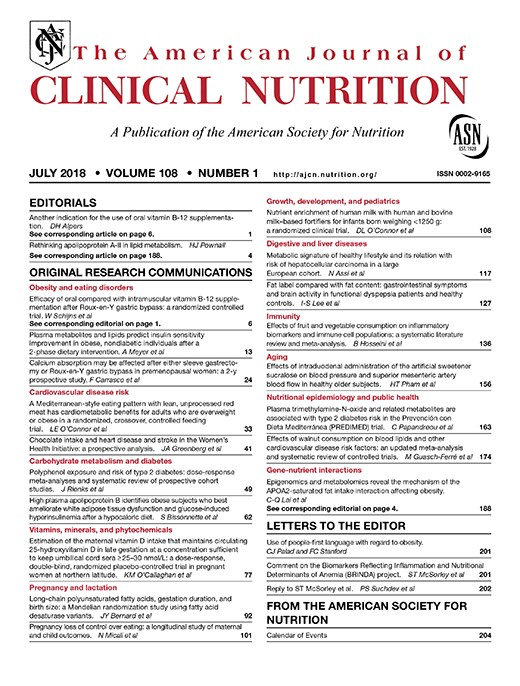
Randomised Controlled Trial
Montmorency tart cherry juice intake can significantly lower systolic blood pressure in men with early hypertension, with improvements linked to phenolic acids.
Keane KM, George TW, Constantinou CL, Brown MA, Clifford T, Howatson G

Clinical Study
Powdered tart cherry supplementation surrounding endurance exercise can decrease muscle damage markers, inflammation, oxidative stress and muscle soreness, while improving performance.
Levers K, Dalton R, Galvan E, O’Connor A, Goodenough C, Simbo S, Mertens-Talcott SU, Rasmussen C, Greenwood M, Riechman S, Crouse S, Kreider RB

Clinical Study
Taking a powdered tart cherry supplement before and after intense resistance exercise can decrease muscle soreness, recovery strength loss, and signs of muscle damage.
Levers K, Dalton R, Galvan E, Goodenough C, O’Connor A, Simbo S, Barringer N, Mertens-Talcott SU, Rasmussen C, Greenwood M, Riechman S, Crouse S, Kreider RB
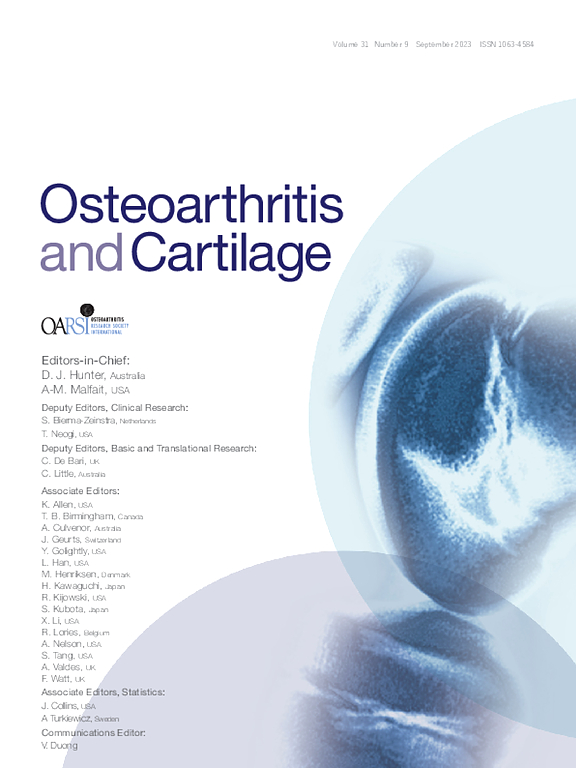
Randomised Controlled Trial
Tart cherry juice potentially helps alleviate symptoms of mild to moderate knee osteoarthritis and decreases the levels of high sensitivity C-reactive protein.
Schumacher HR, Pullman-Mooar S, Gupta SR, Dinnella JE, Kim R, McHugh MP

Randomised Controlled Trial
Tart cherry juice shows promise in easing knee osteoarthritis symptoms.
Schumacher HR, Pullman-Mooar S, Gupta SR, Dinnella JE, Kim R, McHugh MP
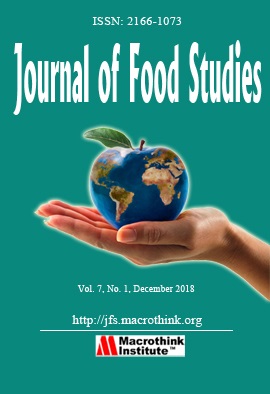
Randomised Controlled Trial
Tart cherry juice may lessen inflammation, thus reducing pain in women with osteoarthritis, according to changes noted in specific inflammatory serum biomarkers.
Kuehl KS, Elliot DL, Sleigh AE, Smith JL

Randomised Controlled Trial
Consumption of tart cherry juice can increase exogenous melatonin that is beneficial in improving sleep duration and quality and might be of benefit in managing disturbed sleep.
Howatson G, Bell PG, Tallent J, Middleton B, McHugh MP, Ellis J

Randomised Controlled Trial
Tart cherry juice blend yielded modest improvements in sleep for older adults with insomnia, exhibiting effects similar to or better than natural products like valerian and melatonin.
Pigeon WR, Carr M, Gorman C, Perlis ML
Executive Summary
Write an executive summary in the form of a blog article on the topic of "Research into Chinese medicine treatment for Cherry" summarising the research below and using language that can be easily understood by patients and avoiding medical jargon using a professional and caring tone of voice.
Write an executive summary in the form of a blog article on the topic of "Researched Chinese medicine treatments for Cherry" summarising the research below in an objective and easy to understand way, and using language that can be easily understood by patients. Group the article into Chinese medicine treatments first, followed by nutrition and other treatments. Avoid using medical jargon and use a professional and caring tone of voice.
Write me a concise but easy to understand executive summary on the topic of "Chinese medicine treatments for Cherry" based on the following research that I will give you. Your summary should be 2 paragraphs long in Australian English spelling and include references to the studies.
A Systematic Review published in 2023 in the journal Current Sleep Medicine Reports found that There is evidence to support significant improvements to total sleep time and sleep efficiency with the ingestion of tart cherries. We identified a total of 277 unique records, from which 8 studies of low-moderate methodological quality were included in the systematic review. Meta-analysis of subjectively recalled sleep efficiency (SE) and total sleep time (TST) were not significant. Objective SE, however, was significantly higher in the cherry cohort when compared to placebo with an effect size of 0.63 (95% CI 0.29–0.97, P < 0.01). There was low associated heterogeneity (I2 = 0%). Objective TST was significantly higher in the cherry cohorts, with a pooled effect size of 1.21 (95% CI 0.83–1.58, P < 0.01). There was high associated heterogeneity (I2 = 81.5%).
A Systematic Review published in 2022 in the journal Complementary Therapies in Medicine found that Tart cherry juice shows promise in aiding blood sugar control and supporting heart health, highlighting its potential as a natural dietary addition. Tart cherry juice was found to lower fasting blood sugar but didn't have a significant impact on blood pressure, insulin, cholesterol, body fat, or weight. It is rich in antioxidants, which may be why it's beneficial for the heart. Changes in gut bacteria might also play a role. More research with larger and varied groups of people is needed to confirm these findings and understand them better. In the meantime, healthcare professionals may consider suggesting tart cherry juice for heart health.
A Review Article published in 2022 in the journal Molecules found that Cherries and blueberries, rich in phenolic compounds, can be effectively used in pharmaceutical products, smart foods, functional beverages, and nutraceuticals to prevent or treat diseases. The research primarily studied the health-promoting potential of cherries and blueberries, given their high nutritional density and substantial phenolic compounds. The focus was on their ability to counteract oxidative stress markers and suppress pro-inflammatory responses, which are significant factors in chronic diseases such as diabetes. The researchers analyzed these fruits for their potential incorporation into various products such as pharmaceutical preparations, smart foods, functional beverages, and nutraceuticals. In the discussion of the results, it was emphasized how cherries and blueberries exhibit significant biological potential. They were not only seen as effective in combatting oxidative stress and inflammation but also as potential immune boosters. The conclusions underscored the fruits' potential role as functional foods and their relevance to the burgeoning popularity of functional beverages, hinting at their promise for inclusion in a variety of health-related products.
A Review Article published in 2022 in the journal Scandinavian Journal of Medicine & Science in Sports found that Cherry juice, when consumed several days before exercise, hastens muscle function recovery post-exercise, making it a valuable 'precovery' intervention. The review sourced data from fifteen studies that involved differing procedures for tart cherry juice intake in relation to exercise, and their impacts on muscle function, inflammation, and soreness after working out. Various forms of cherry products were investigated such as concentrated juice, juice from fresh-frozen cherries, tart cherry concentrate gel, and tart cherry powder. While the specific dosages varied depending on the type of cherry product, the timing of the dosing regimen emerged as a vital factor. Studies consistently reveal faster muscle function recovery post-exercise if the juice is ingested for numerous days preceding the exercise. The impact on soreness, inflammation, and the effectiveness of starting the regimen on the day of, or post-exercise remain mixed and unclear. Notably, tart cherry powder failed to boost any recovery metric in the after-workout days. The findings advocate for using the term "precovery" for interventions that begin prior to the exercise to assist in recovery post-exercise. Among a variety of athletic activities, cherry juice demonstrates its merit as an effective precovery beverage.
A Randomised Controlled Trial published in 2020 in the journal Journal of Medicinal Food found that Daily consumption of tart cherry juice may reduce processes involved in accelerated atherogenesis, potentially decreasing the risk of cardiovascular diseases. In this randomized, single-blind, placebo-controlled, parallel-arm pilot clinical trial, 19 men and women aged between 20 to 60 years who have metabolic syndrome participated. They were assigned to consume either 240ml of tart cherry juice or an isocaloric placebo-control drink twice daily for a period of 12 weeks. Initial evaluations on arterial stiffness (determined through pulse wave velocity), brachial and aortic blood pressures, wave reflection or augmentation index, and blood markers for cardiovascular and metabolic health were established as their baseline values. Despite observing no significant alterations in hemodynamics, arterial stiffness, or other assessed blood biomarkers, there was a noted decrease in oxidized low-density lipoprotein and soluble vascular cell adhesion molecule-1 levels in the tart cherry juice group compared to the control group at the end of 12 weeks. In addition, there was a trending lower total cholesterol level in the tart cherry group versus the control at the end of the trial. These results suggest that daily tart cherry juice consumption may help decrease processes involved in the rapid progression of atherogenesis.
A Clinical Study published in 2020 in the journal European Journal of Nutrition found that Montmorency tart cherry juice can significantly improve blood pressure, fasting glucose, cholesterol rates and respiratory exchange ratio in those with metabolic syndrome. In a blind, placebo-controlled, crossover trial, the researchers recruited twelve participants suffering from metabolic syndrome. They were given either Montmorency tart cherry juice or a placebo for seven days. During this period, a variety of blood-based and functional cardio-metabolic biomarkers were analysed both before and after the supplementation period. In addition to this seven-day supplementation, the acute response of the participants to a single bolus of the treatment was measured on the seventh day, at intervals up until five hours post ingestion of the bolus. The researchers found that certain key health markers showed a significant improvement in the group that had taken the Montmorency tart cherry juice. These markers included 24-hour blood pressure levels, fasting glucose levels, total cholesterol, the ratio of total cholesterol to high-density lipoproteins (the "good" cholesterol), as well as resting respiratory exchange ratio. These findings suggest that the Montmorency tart cherry juice has the potential to drastically improve cardio-metabolic health in those affected by metabolic syndrome.
A Meta-Analysis published in 2020 in the journal European Journal of Nutrition found that Chronic consumption of cranberry or cherry juice might considerably improve blood pressure levels. The review involved a comprehensive search across several databases including PubMed, Web of Science, Scopus, and psycARTICLES from the beginning until January 2020. The search results included forty-five randomized controlled trials that lasted at least a week, assessing the effects of berries, citrus, and cherries on different cardiovascular disease risk indicators. These indicators were endothelial function, blood pressure, lipid status, and inflammatory biomarkers. Different preparations of berries including juice of barberry, cranberry, grape, pomegranate, blueberry powder, grape, raspberry and freeze-dried strawberry were studied. The resulting reports showed improvements in endothelial function, inflammation markers, lipid status, and blood pressure. Among the interventions, cranberry juice and cherry juice were notably associated with a potential decrease in systolic and diastolic blood pressure. Consumption of berries led to a significant increase in the levels of sVCAM-1, a protein that is usually found higher in people with cardiovascular risk. However, no significant improvements were observed for other specified fruits in this research.
A Systematic Review published in 2019 in the journal Evidence-Based Complementary and Alternative Medicine found that Gout patients regularly ingesting cherry extract/juice reported fewer gout flare ups than those patients who did not supplement their diets with cherry products. The six studies included in this systematic review reported decreases in the incidence and severity of gout following the ingestion of cherries. Gout patients regularly ingesting cherry extract/juice reported fewer gout flare ups than those patients who did not supplement their diets with cherry products. Overall, we observed a positive correlation between the consumption of tart cherry juice and a decrease in serum uric acid concentration.
A Randomised Controlled Trial published in 2019 in the journal Nutrients found that Daily consumption of tart cherry juice for 12 weeks showed anti-oxidative and anti-inflammatory properties which may reduce blood pressure and lower LDL cholesterol in older adults. In the randomized-controlled clinical trial conducted, 37 participants aged between 65 and 80 were given either 480 mL of tart cherry juice or a control drink to consume daily for a span of 12 weeks. Blood biomarkers linked to inflammation and oxidative stress were analyzed both at the start and after the 12 weeks intervention. Post the intervention period, levels of several inflammation and oxidative stress blood biomarkers in the tart cherry juice group observed notable differences compared to the control group. Particularly, a perceivable elevation in DNA repair activity coupled with a reduced mean c-reactive protein level was seen. Furthermore, a significant group effect was seen in plasma levels of c-reactive protein and malondialdehyde, with a slightly less significant effect observed for oxidized low-density lipoprotein. Post- intervention plasma levels showed a decreasing trend, with c-reactive protein, malondialdehyde, and oxidized low-density lipoprotein falling by 25%, 3%, and 11% respectively compared to the baseline values.
A Randomised Controlled Trial published in 2019 in the journal Food & Function found that Daily consumption of tart cherry juice may enhance cognitive abilities in older adults, likely due to reduction of hypertension, inflammation, and oxidative stress. In this randomized controlled trial, 37 adults aged between 65 and 80 years with normal cognitive function were assigned to consume two cups of Montmorency tart cherry juice daily for a duration of 12 weeks. Participants' subjective memory and objective cognitive performance were evaluated at the starting point and after the 12-week juice supplementation using a validated memory questionnaire and a standard assortment of tests designed for cognitive assessment. Factors such as daily caloric intake and physical activity levels were also monitored during the study. After the 12-week intervention, participants who consumed tart cherry juice showed an improvement in their contentment with memory scores, demonstrated decreased scores of movement time, and performed better on a task of paired associates learning when compared to the control group. Notably, the results revealed that the tart cherry juice group demonstrated improvements on measures of visual sustained attention and spatial working memory relative to their own baseline values. These findings suggest that the potential benefits of tart cherry juice to cognitive abilities might be attributed to the juice's antioxidant and anti-inflammatory properties, and its capacity to reduce blood pressure.
A Review Article published in 2019 in the journal Therapeutic Advances in Musculoskeletal Disease found that Cherries and their products have antioxidant properties, the capacity to inhibit the acute inflammatory response to urate crystals, and the ability to decrease bone resorption that is characteristic of gouty bone erosions. Phenolics, and more specifically, the anthocyanins found abundantly in cherries, have been linked to the inhibition of IL-6, TNF-α, IL-1β, IL-8, COX-I and COX-II, as well as the downregulation of NFkB-mediated osteoclastogenesis, suggesting that cherries may have the ability to reduce both acute and chronic inflammation that play a role in recurrent gout flares and chronic destructive arthropathy. Additionally, cyanidin-3-glucoside enhanced genes related to osteoblast differentiation, suggesting that anthocyanins may also play a role in bone formation.
A Randomised Controlled Trial published in 2018 in the journal American Journal of Therapeutics found that Cherry juice increases sleep time and efficiency in older adults with insomnia, potentially due to its inhibition of a process that degrades tryptophan and stimulates inflammation. The study followed a placebo-controlled balanced crossover design, with subjects older than 50 years old with insomnia being randomized to either placebo or cherry juice consumption twice daily for two weeks, with a two-week washout period in between. Sleep was evaluated using polysomnography and five validated questionnaires, while serum measurements were conducted for several bio-indicators. In vitro studies were also performed to determine the ability of cherry juice components to inhibit a specific physiological process. The study found that sleep time increased by 84 minutes per polysomnography evaluations and sleep efficiency increased per the Pittsburgh Sleep Quality Index. Serum measurements revealed decreased levels of certain bio-indicators suggesting reduced inflammation. In vitro studies also found that components present in cherry juice inhibited a specific process that degrades the amino acid tryptophan, potentially leading to these improved sleep outcomes. Other questionnaires, however, showed no significant differences in results.
A Randomised Controlled Trial published in 2016 in the journal The American Journal of Clinical Nutrition found that Montmorency tart cherry juice intake can significantly lower systolic blood pressure in men with early hypertension, with improvements linked to phenolic acids. In a carefully controlled, blinded, crossover study employing a randomized Latin square design, fifteen male participants showing early signs of hypertension were given either a 60-mL dose of Montmorency tart cherry (MC) concentrate or a placebo. A recovery period of at least 14 days was allowed between tests to eliminate lingering effects from the previous test. Observations centred on microvascular reactivity, arterial stiffness, blood pressure, and phenolic acid absorption, and these were collected at designated intervals before and up to eight hours after consuming the MC concentrate or placebo. The analysis of the data revealed that consumption of the MC concentrate resulted in a significant reduction in systolic blood pressure in comparison to the placebo, reaching maximum impact two hours after intake. Crucially, this positive effect was found to coincide with an increase in circulating protocatechuic and vanillic acid 1-2 hours post consumption. Thus, it is suggested that the benefits of MC for cardiovascular health, particularly for blood pressure control, can be directly attributed to the influence of these circulating phenolic acids.
A Clinical Study published in 2016 in the journal Journal of the International Society of Sports Nutrition found that Powdered tart cherry supplementation surrounding endurance exercise can decrease muscle damage markers, inflammation, oxidative stress and muscle soreness, while improving performance. In this study, 27 endurance-trained runners were matched based on their race pace, age, body mass, and fat-free mass. The runners were split into two groups in a double-blind manner: a placebo group given capsules containing 480 mg of rice flour and a tart cherries group given CherryPURE® capsules. These were ingested daily for 10 days, including on the day of the half-marathon and up to 48 hours post-race. The results showed that runners given tart cherry supplementation completed their half-marathon faster (by 13%) than those given a placebo. Moreover, the tart cherry group had less muscle damage markers over time, a steady increase in antioxidant activity during recovery, 47% lower inflammatory markers, and a 34% lower pre-run soreness in the medial quadriceps compared to the placebo group. These results demonstrate the beneficial effects of tart cherry supplementation on performance and recovery in aerobically trained individuals.
A Clinical Study published in 2015 in the journal Journal of the International Society of Sports Nutrition found that Taking a powdered tart cherry supplement before and after intense resistance exercise can decrease muscle soreness, recovery strength loss, and signs of muscle damage. In the methodology of this study, 23 healthy, resistance-trained men were chosen and paired based on relative maximal back squat strength, age, body weight, and fat-free mass. They were randomly assigned to ingest capsules containing either a placebo or powdered tart cherries for 10 days, including on the day of exercise as well as 48-hours post-exercise. The subjects performed ten sets of ten repetitions at 70% of a 1-RM back squat exercise. Fasting blood samples were taken along with isokinetic MVCs and quadriceps muscle soreness ratings before the exercise and at various intervals after the exercise. In terms of the results, muscle soreness was found to be lower in the group that consumed the tart cherry supplement over the course of the exercise. Furthermore, this group showed lesser changes in serum levels of creatinine and total protein. However, no significant effects were observed for serum inflammatory or anti-inflammatory markers and no significant changes in free radical production, lipid peroxidation, or antioxidant capacity markers were seen amongst the group that took the tart cherry supplement. The group that took the supplement also showed greater changes in whole blood lymphocyte counts from before the exercise, but their lymphocyte counts returned faster to pre-exercise values compared to the placebo group.
A Randomised Controlled Trial published in 2013 in the journal Osteoarthritis and Cartilage found that Tart cherry juice potentially helps alleviate symptoms of mild to moderate knee osteoarthritis and decreases the levels of high sensitivity C-reactive protein. The study involved 58 non-diabetic participants with grade 2-3 osteoarthritis as categorized by Kellgren. Participants were randomly assigned to consume two 8-ounce bottles of either tart cherry juice or a placebo daily for six weeks. There was a one-week washout period before participants switched to the alternate treatment in a crossover design. The research measured participants' Western Ontario McMaster Osteoarthritis Index scores and walking times before and after each treatment. Levels of plasma urate, creatinine, and high sensitivity C-reactive protein were also noted at baseline and after each treatment. Acetaminophen was permitted as a rescue drug with self-reporting after each treatment period. There was a noticeable reduction in Western Ontario McMaster Osteoarthritis Index scores following the cherry juice treatment, an effect not observed with the placebo. High sensitivity C-reactive protein also showed a decrease during the cherry juice treatment. The reduction in high sensitivity C-reactive protein was consistent with the improvement observed in osteoarthritis index scores. However, consumption of tart cherry juice didn't significantly affect walking time, usage of acetaminophen, or plasma urate and creatinine levels.
A Randomised Controlled Trial published in 2013 in the journal Osteoarthritis and Cartilage found that Tart cherry juice shows promise in easing knee osteoarthritis symptoms. This study included 58 patients with knee osteoarthritis (OA) who were given either cherry juice or a placebo. While both groups showed some improvement in WOMAC scores, the cherry juice group experienced a 15% improvement, compared to 6% in the placebo group. However, this difference wasn't statistically significant. The cherry juice group also saw a 23% reduction in hsCRP (an inflammation marker), whereas the placebo group had a 51% increase. This suggests an anti-inflammatory effect of cherry juice. The study notes some limitations, including small sample size and the need for further research. Overall, cherry juice may offer benefits for OA patients.
A Randomised Controlled Trial published in 2012 in the journal Journal of Food Studies found that Tart cherry juice may lessen inflammation, thus reducing pain in women with osteoarthritis, according to changes noted in specific inflammatory serum biomarkers. This study used a randomized, double blind, placebo-controlled trial design, involving twenty women with inflammatory osteoarthritis, aged between 40 to 70 years. The participants were given 10.5 ounce bottles of tart cherry juice or a placebo cherry drink to consume twice daily for a span of 21 consecutive days. Pain was assessed at the start and the end of the intervention period. At these same junctures, blood samples were collected to monitor the influence of the juice on serum biomarkers of inflammation: C-Reactive Protein, Interleukin-6, Interleukin-10, and Tumor Necrosis Factor-alpha. The results depicted that the group consuming tart cherry juice experienced a significant reduction in the serum biomarker, C-Reactive Protein, an indication of lowered inflammation. This is suggestive that tart cherry juice could be an efficient way of reducing inflammation, and subsequently, the pain experienced by women suffering from osteoarthritis.
A Randomised Controlled Trial published in 2011 in the journal European Journal of Nutrition found that Consumption of tart cherry juice can increase exogenous melatonin that is beneficial in improving sleep duration and quality and might be of benefit in managing disturbed sleep. Total melatonin content was significantly elevated (P < 0.05) in the cherry juice group, whilst no differences were shown between baseline and placebo trials. There were significant increases in time in bed, total sleep time and sleep efficiency total (P < 0.05) with cherry juice supplementation. Although there was no difference in timing of the melatonin circardian rhythm, there was a trend to a higher mesor and amplitude.
A Randomised Controlled Trial published in 2010 in the journal Journal of Medicinal Food found that Tart cherry juice blend yielded modest improvements in sleep for older adults with insomnia, exhibiting effects similar to or better than natural products like valerian and melatonin. In the pilot study, 15 older adults who were suffering from chronic insomnia but were otherwise healthy participated in a randomized, double-blind, crossover design. The study lasted for 6 weeks, with each participant receiving both the proprietary tart cherry juice blend and a placebo for 2 weeks with a 2-week washout period between the two treatments. Sleep continuity and insomnia severity were evaluated by analyzing 2-week mean values derived from daily sleep diaries and the Insomnia Severity Index respectively. The tart cherry juice blend was found to bring significant improvements in all assessed sleep variables before and after treatment. These improvements were particularly noticed in reducing insomnia severity, specifically the minutes awake after sleep onset, compared to placebo. Sleep latency, total sleep time, or sleep efficiency didn't show any notable improvements compared to placebo. The benefits of the tart cherry juice on sleep for older adults with insomnia were in the range of effect sizes seen in studies using valerian or melatonin, which are the most commonly studied natural products for insomnia. But these effects were considerably less than evidence-based insomnia treatments such as hypnotic agents and cognitive-behavioral therapies.
Moderation Tools
Topic
Sign In
Users not signed in are limited to viewing the 5 most recent items of content.